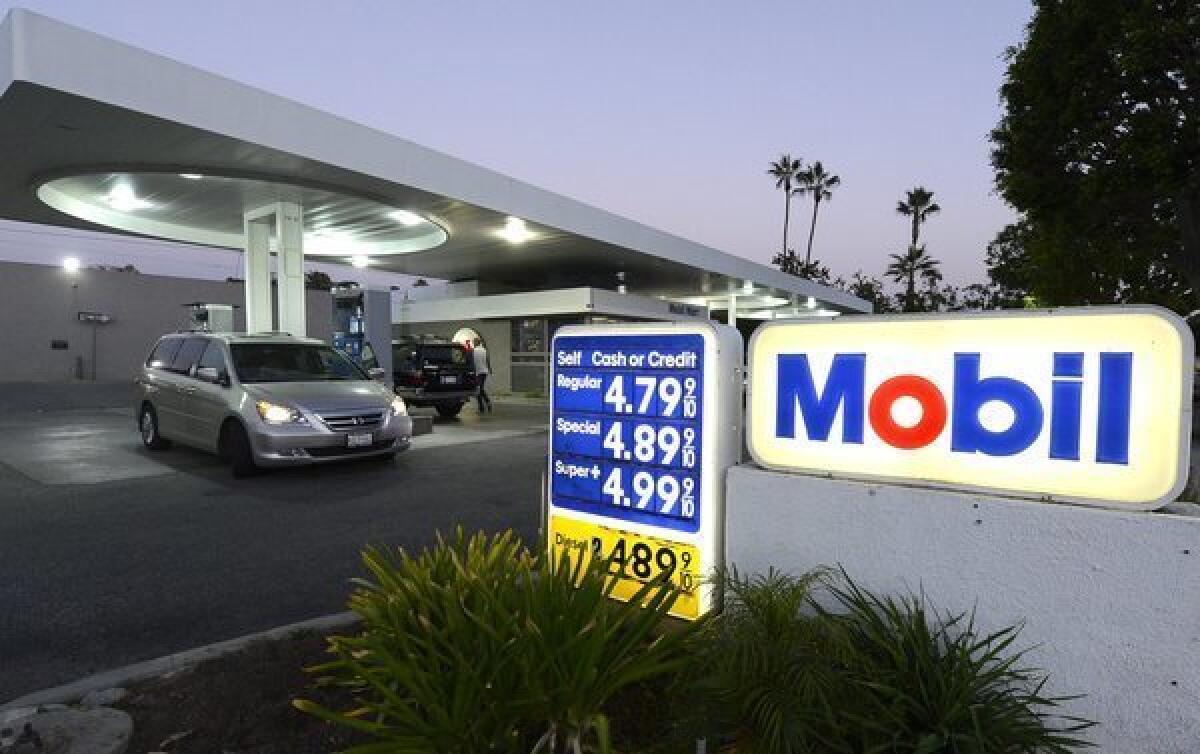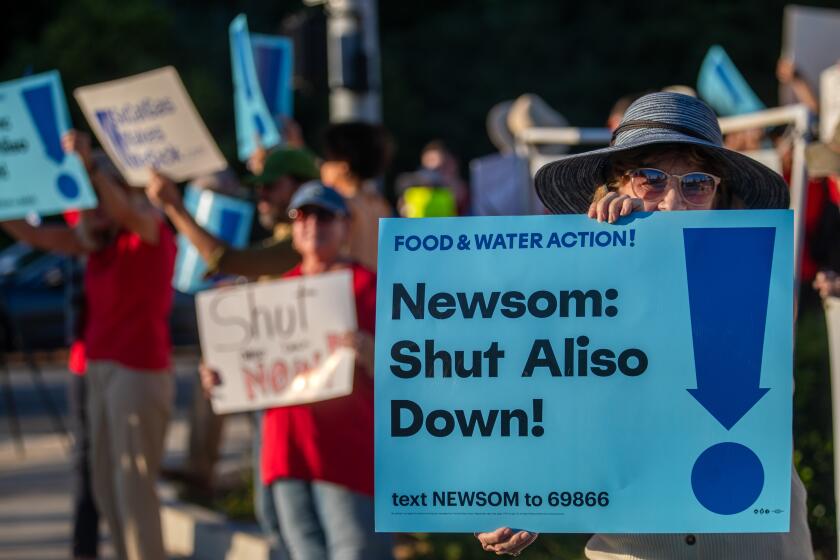The climate change guilt trip

- Share via
A friend recently returned from a camping trip in the Sierra Nevada. His eyes shone as he described the opalescent sky, the vitality of wildlife in spring and the fun he’d had playing with his two young daughters during the mellow evenings. It had been a really good trip, an experience to treasure, he said.
I casually asked how long it took to get there. “Oh, it wasn’t too bad,” he said, and then caught himself, as if he’d said something wrong. “But we took the minivan this time, which I suppose means we weren’t so in tune with nature after all.”
I felt slightly hurt. I am an environmentalist — I work for Greenpeace. Did he think that makes me some moral arbiter of fun, sternly passing judgment on those who ignore the perils of climate change to enjoy a weekend in the mountains?
Of course, it wasn’t really about me. What my friend expressed was climate guilt, a feeling that many of us who care about environmental issues experience every day. I am not immune. We feel guilty about driving cars and watching TV and turning on lights, as if that makes us personally responsible for this gigantic threat that looms over us.
For years, caring governments and thoughtful corporations have communicated the idea that we’re all in this together, that if we each just do our bit we can solve this global warming mess. Duke Energy, a utility company that depends heavily on coal, points out that “saving the environment can be as easy as changing a light bulb.” It’s a gentle, brotherly tone. But there’s something in the subtext here too — a warning: “Let he who is without sin cast the first stone.”
In economics this would be called a barrier to entry, an obstacle that makes it difficult to gain access to a given market. In this case, rather than economic, the barrier is philosophical. If you aren’t taking mass transit, you have no right to oppose drilling for oil in the Arctic. Until you’ve cleaned up your act entirely, you’re not entitled to criticize the major oil companies for cashing in our children’s future.
Whether this “guilt barrier” is deliberately constructed or just innate to our psyches, it’s being exploited by the fossil fuel cartel. Its members are content to have us feel guilty, particularly if it contributes to a sense of helplessness. Where once companies such as Exxon Mobil denied that their products were causing dangerous levels of pollution, now they claim it is impossible to switch from them. “Look at your life,” this thinking goes. “You’re up to your neck in it. You really want us to turn off the tap?”
This accusation is based on a false premise: that all alternatives are equally accessible to consumers, and we’re all happily choosing fossil fuels. That’s simply not true, and nowhere is this more evident than in the case of the oil industry’s greatest threat: the electric car.
Despite encouraging news that the Toyota Prius has become the No. 1 selling car in California, fully electric vehicles remain out of financial reach for all but the most affluent families. And like most of America, our state lacks the charging infrastructure to support many such cars anyway. More barriers to entry.
Whatever my friend might personally think about climate change and air pollution, he has to stick to a budget that will support his whole family. Nor will he risk stranding them all along I-5. His “choice” of a minivan is in fact no choice at all. He’s left feeling disempowered, implicated and hypocritical. Any desire to act is supplanted by resignation. But whose fault is it?
Oil companies have made up the most powerful industry on Earth for the last 50 years. They have consistently lobbied against fuel efficiency standards. They’ve fought any taxes on the pollutants we must breathe. They’ve sneered at electric vehicles and insisted on a market so rigged that only one technology could ever win out anyway. They indefensibly refuse to pay for the carbon their products — though they would say “your cars” — spew into the atmosphere.
Maybe it’s time for us to remove the guilt. Yes, I drive a car that runs on gasoline. I fly for work when necessary and occasionally for vacation. But doing these things is not the same as admitting they are inevitable. Five years ago I flew more; now I use Skype. Bike lanes have been newly painted in my neighborhood, so I cycle to the store. In a couple of years, electric cars might come into my price range. In the meantime, I refuse to feel guilty.
In the battle against climate change, we should not be waging guilt trips on one another. Rather, we should take the fight to those who use our sense of personal responsibility against us. Climate change is a problem, and we must fix it. But it’s certainly not our fault.
James Turner is head of communications for Greenpeace International’s Save the Arctic Campaign.
More to Read
A cure for the common opinion
Get thought-provoking perspectives with our weekly newsletter.
You may occasionally receive promotional content from the Los Angeles Times.










